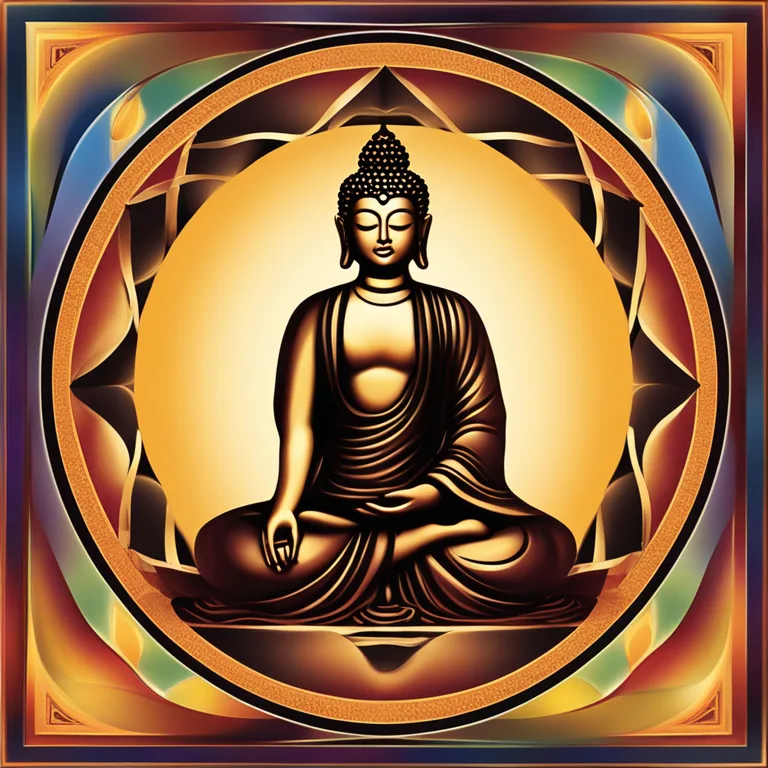
Mindful Meditation for Lower Blood Pressure
Discover meditation techniques to naturally reduce hypertension and promote cardiovascular health.
article by Hina Kurosawa
Harmony of Body and Mind
Meditation has been practiced for centuries as a technique to cultivate inner peace and enhance overall well-being. Its benefits are not just limited to mental health, as modern research reveals the impact of meditation on physical conditions such as high blood pressure. Hypertension, commonly known as high blood pressure, is a significant health risk that can lead to severe conditions like heart disease and stroke. By incorporating meditation techniques into your daily routine, you can activate your body's relaxation response, leading to a decrease in blood pressure and a healthier heart.

Understanding Biofeedback Meditation
Biofeedback is a technique that involves becoming more aware of and learning to control physiological functions. During biofeedback meditation sessions, you attach sensors that measure body functions such as heart rate, muscle tension, and, most importantly for hypertension, blood pressure. Over time, you can learn to control these functions consciously. Gaining mastery over stress-induced reactions can potentially lower your blood pressure significantly. The key is regular practice, which benefits heart health and contributes to overall serenity.

Deep Breathing for Calmness
One of the simplest yet profoundly effective meditation techniques for blood pressure management is deep breathing. Start by sitting comfortably in a quiet spot, close your eyes, inhale slowly and deeply through the nose, hold for a few seconds, and then exhale completely through the mouth. Repeating this cycle for just a few minutes each day can activate your body's natural relaxation response, reduce stress hormones, decrease heart rate, and lower blood pressure.

Transcendental Meditation for Health
Transcendental Meditation (TM) is a form of silent mantra meditation. It involves sitting comfortably with closed eyes and silently repeating a mantra. This process is meant to transcend regular thought and induce a state of pure consciousness. Studies suggest TM can reduce systolic and diastolic blood pressure by a few points, which might seem modest but can have a significant impact on cardiovascular health in the long term.

Yoga Nidra for Balance
Yoga Nidra, a state of conscious deep sleep, is a guided relaxation practice that has shown promise in lowering blood pressure. It's a systematic form of meditation that brings about deep physical relaxation while maintaining mental awareness. A typical session can last anywhere from 20 to 40 minutes and involves laying on your back while being guided through different stages of relaxation. This technique aims to reduce tension and anxiety, which are common contributors to high blood pressure.
Zen Meditation for Focus
Zen Meditation, or Zazen, focuses on observing the breath and posture and clearing the mind. Regular practice of Zazen can lead to a state of attentive and open awareness. This meditation technique has been noted to improve stress management, promote relaxation, and as a result, may help in lowering blood pressure. Emphasizing mindfulness of breath is especially helpful in managing emotional responses and reducing physiological stress reactions.
Astrological Insights for Relaxation
Merging astrology with meditation, some practitioners recommend tailoring your relaxation technique to your zodiac sign to maximize effectiveness. For instance, fiery Aries may benefit from high-energy meditations that involve movement, while water signs like Cancer may find deeper peace in guided imagery that evokes soothing scenes. As we look forward to the new astrological cycles beginning in 2024, consider consulting with an astrologer to further personalize your meditation experience to align with celestial rhythms.
Published: 12/20/2023
Modified: 12/20/2023
More predictions
Come back here soon to learn more about yourself and your future


Meditation Methods to Reduce Blood Pressure
Discover effective meditation techniques that can aid in managing and reducing high blood pressure for better overall health.


Learning Meditation Techniques
Learn key meditation practices for inner peace and clarity in our comprehensive guide.


Mastery in Koan Meditation
Delve into koan meditation techniques to deepen your spiritual practice and enhance mindfulness.